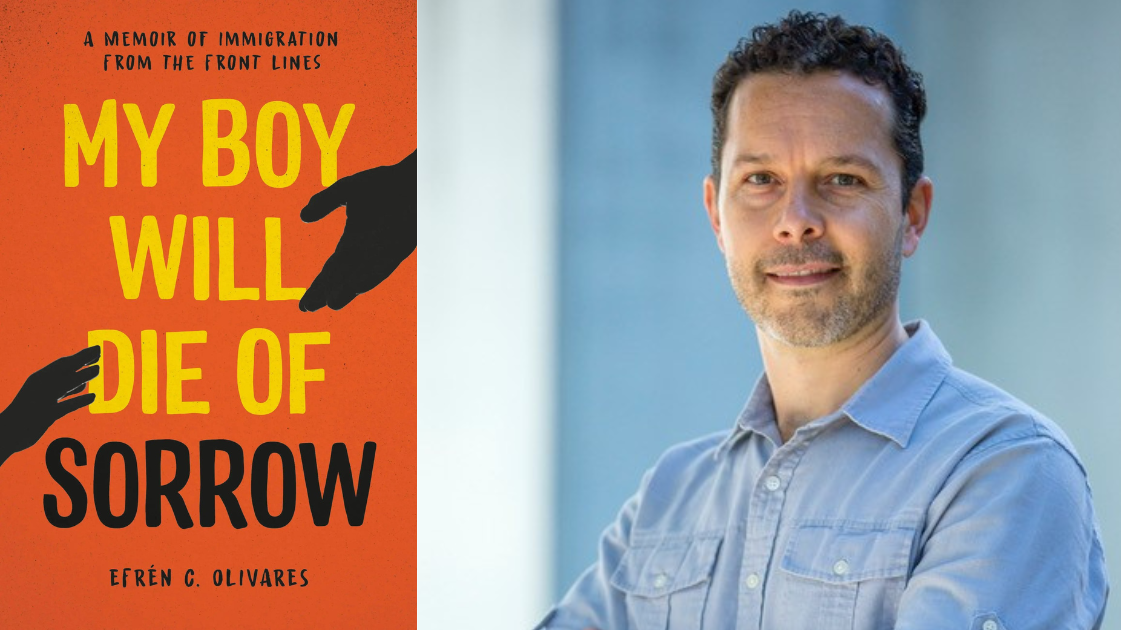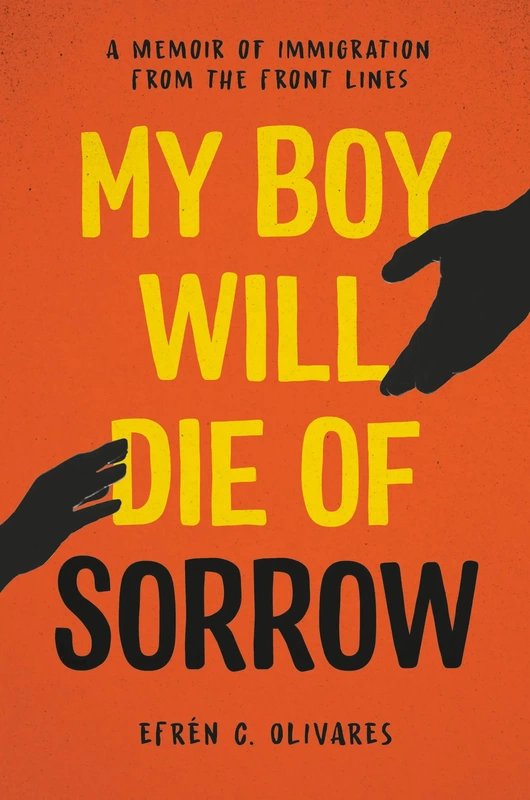My Boy Will Die of Sorrow: A Memoir of Immigration from the Front Lines
Efrén C. Olivares
|
When you purchase a book through our site, we earn an affiliate commission and so do independent book stores.
|
In this age of constant information and often disturbing political news it is easy to become numb to policy implications as they are felt in real time. Efrén Olivares’ My Son Will Die of Sorrow wakes readers from political overwhelm through his warmth and humanity, even as he discusses the deeply tragic events surrounding the Trump administration’s Zero Tolerance policy that separated children from their parents at the U.S. border. Reading the events of 2018 from the vantage point of four years does not remove the dystopic overlay from a policy that forcibly took children away from their parents. It does, however, allow for a larger contextual examination of these events which in the hands of Olivares is masterfully and artistically done. Olivares’ weaves together his first-hand perspective advocating for immigrant families during 2018 as a lawyer working for the Texas Civil Rights project, with his own memoir as a child who immigrated to the US, while at the same time providing a critical analysis of the state of immigration policy in the U.S. Chapters alternate between 2018 and his personal story. The effect is profound. It leaves readers with the sense that all three strands are elements of the same story. The deleterious impact of Zero Tolerance is discussed by an author who as a child experienced his own immigrant journey and both are connected to a much longer story of the discriminatory policies and practices in the U.S. After all, as Olivares reminds us, child and family separation was a baked in feature of the hundreds of years of slavery in the U.S. Human rights violations like the right to have family relationships were destroyed through the institution of U.S. slavery which privileged economic gain over human life. Native Americans were also treated in ways that disregarded their humanity and familial rights. Throughout the book, Olivares exemplifies the ways “othering” through race and birthplace has allowed for dehumanization that has furthered the widespread acceptance of nonwhite people experiencing punitive laws that white people do not face in the U.S. |
While unpacking the history of discriminatory laws and practices in the US towards nonwhite people, Olivares goes out of the way to humanize the stories he tells about 2018. Olivares shares specific, detailed stories about people he worked with giving names to parents and children, taking them from being mere statistics to actual people experiencing injustice.
Further, he is vulnerable with his readers, as a father himself, sharing what it was like to listen to stories from his clients, parents desperate to be reunited with their children and then to return to his home and his own young child. Olivares shares how psychologically harrowing it was to experience other parents’ suffering and to not be able to give them concrete information about the where abouts of their child or a timeline on when they would be reunited. And yet to be able to return home after work and to be able to hug his own child after viscerally sharing the pain of others.
One might expect to feel deflated after reading My Boy Will Die of Sorrow but in fact the book engenders feelings of hope and galvanized action. This is because Olivares first names and considers the depth of harm inflicted by the Zero Tolerance policy and the legal and bureaucratic infrastructure that so seamlessly supported it. And then he brings in the beauty and humanity of his own story. The writer, Barbara Kingsolver writes, “Art is the antidote that can call us back from the edge of numbness, restoring the ability to feel for another.”¹ Olivares’ book is art. Since it is written by a lawyer committed to integrating his heart and mind, the reader is likewise able to feel the call to integration. The book My Boy Will Die of Sorrow allows readers to both think and to feel the injustices committed in U.S. immigration policy and to, filled with hope by Olivares’ example, try to make a difference using whatever means necessary.
¹ Barbara Kingsolver, High Tide in Tucson.
My Boy Will Die of Sorrow is a publication by Hachette Books.
Efrén C. Olivares is the Deputy Legal Director of the Immigrant Justice Project at Southern Poverty Law Center. He was the lead lawyer in a successful landmark petition to the Inter-American Commission on Human Rights on behalf of families separated under the Zero Tolerance policy. He previously directed the Racial and Economic Justice Program at the Texas Civil Rights Project. His writings on immigration policy have also been published by the New York Times, USA Today, and Newsweek, and he has testified before Congress and at briefings on Capitol Hill about immigration and border policies. Part of his work representing separated families was featured in the CBS News Documentary The Faces of Family Separation, released in 2019. He has also been interviewed as an expert attorney on immigrants’ rights issues on numerous TV and radio shows, and was featured in John Legend’s “Can’t Just Preach” series.
Olivares was the first member of his family to attend college. He is a graduate of the University of Pennsylvania and Yale Law School.
Further, he is vulnerable with his readers, as a father himself, sharing what it was like to listen to stories from his clients, parents desperate to be reunited with their children and then to return to his home and his own young child. Olivares shares how psychologically harrowing it was to experience other parents’ suffering and to not be able to give them concrete information about the where abouts of their child or a timeline on when they would be reunited. And yet to be able to return home after work and to be able to hug his own child after viscerally sharing the pain of others.
One might expect to feel deflated after reading My Boy Will Die of Sorrow but in fact the book engenders feelings of hope and galvanized action. This is because Olivares first names and considers the depth of harm inflicted by the Zero Tolerance policy and the legal and bureaucratic infrastructure that so seamlessly supported it. And then he brings in the beauty and humanity of his own story. The writer, Barbara Kingsolver writes, “Art is the antidote that can call us back from the edge of numbness, restoring the ability to feel for another.”¹ Olivares’ book is art. Since it is written by a lawyer committed to integrating his heart and mind, the reader is likewise able to feel the call to integration. The book My Boy Will Die of Sorrow allows readers to both think and to feel the injustices committed in U.S. immigration policy and to, filled with hope by Olivares’ example, try to make a difference using whatever means necessary.
¹ Barbara Kingsolver, High Tide in Tucson.
My Boy Will Die of Sorrow is a publication by Hachette Books.
Efrén C. Olivares is the Deputy Legal Director of the Immigrant Justice Project at Southern Poverty Law Center. He was the lead lawyer in a successful landmark petition to the Inter-American Commission on Human Rights on behalf of families separated under the Zero Tolerance policy. He previously directed the Racial and Economic Justice Program at the Texas Civil Rights Project. His writings on immigration policy have also been published by the New York Times, USA Today, and Newsweek, and he has testified before Congress and at briefings on Capitol Hill about immigration and border policies. Part of his work representing separated families was featured in the CBS News Documentary The Faces of Family Separation, released in 2019. He has also been interviewed as an expert attorney on immigrants’ rights issues on numerous TV and radio shows, and was featured in John Legend’s “Can’t Just Preach” series.
Olivares was the first member of his family to attend college. He is a graduate of the University of Pennsylvania and Yale Law School.
Comment Box is loading comments...
|
|









